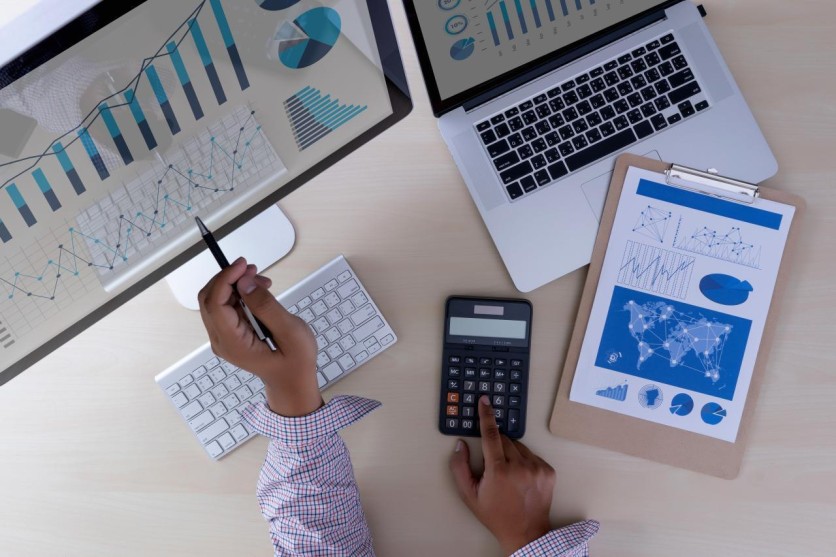
For a long time, recording business finances involved a lot of paperwork, which was complicated and monotonous. However, this is no longer the case. Many businesses are now using business accounting software to record, balance, and store their financial data.
Accounting software helps business owners track the movement of their money to and from their accounts. It also significantly reduces the possibility of human errors and also helps you assess crucial data with the click of a button.
Because of the various options available in the market, finding the most suitable software for your business can be a nerve-wracking experience. Here are five tips to help you select the best accounting software for your business.
1. Understand Your Needs
The basic step when selecting accounting software for your business is considering your business needs. The key to finding the right accounting software for your business is to look at your business operations and consider the various accounting software companies in the market.
In your business analysis, make sure you look at both financial and managerial needs. Your analysis should be broad and in-depth to address the obvious questions and those that make you think. Also, take your time in this process because you don't want to repeat it in the next three years.
The size and revenue of your business is a vital factor in this step. For example, if you make half a million US dollars in profits annually, you will need a different accounting software than a business that makes USD$30,000 a year. There are various tailored options for small- and medium-sized businesses.
You must also consider your industry and ensure the software you choose understands businesses in your niche. For example, various accounting software, such as Wave, are created for businesses in retail, manufacturing, and many other fields.
2. Scalability
Many business owners make the mistake of choosing an application that suits their needs only when purchasing. Don't be a victim of this. You don't want to go through the trouble of migrating all your business data to another software once your business grows. The software should be able to accommodate your growth and progress.
Select a software that can grow with your needs. Some software companies offer a single version of their products. But others provide progressive versions where you can upgrade, depending on your business size or type.
It's important that you go for one that offers an entry-level product but can also keep up with your advancement so you don't need go back to the market for another software.
3. Budget
There are various software options available regardless of your budget size. You can find relatively cheap accounting software options, but it may not be effective for your business needs and operations.
You can get more specialized software for a much higher price. The cost is usually higher because the user base is low. Though you pay more for specialized software, the Return on Investment (ROI) is much higher, and it also minimizes common accounting errors. This saves both time and money.
In your budget, also remember to consider support costs. Some accounting software companies provide additional support via phone or email at an additional fee. Others provide free support for small businesses for a specific time, such as three months or one year, then charge a monthly or yearly fee after that.
4. Cloud-Based Applications
Cloud computing has become an essential driving force not only globally but also in many business operations. Don't dismiss cloud-based accounting software, as it can benefit your business tremendously.
You can access cloud-based applications from any location as long as there is a powerful internet connection. You need not buy servers or software licenses to operate them. In case of any upgrades or additional installations, they are done on the server end. This means that you and your staff don't have to worry about installing and keeping the software up to date.
Also, cloud-based software assures you of data security. Because your business data is away from your business location, it stays safe even in the event of theft or a natural disaster, such as a fire or flood.
To add some icing on the cake, some cloud-based accounting software can be integrated with offline accounting software. This allows seamless storage and accessibility for your business data.
5. Consult with Your Accountant
With accounting software, your accountant won't have to spend a lot of time on some tasks. This means you save money for other operations. While business accounting software streamlines business operations, it doesn't replace your accountant; they must still make sure your business complies with legal and other accounting guidelines.
Also, your accountant is the most suitable person to recommend the right software to suit your needs. They can provide an educated perspective on which software is the best for a certain enterprise. Your accountant may even go a step further and help you set up the software.
Key Takeaways
Finding the most suitable accounting software for your business shouldn't be a complicated process.
You must understand your business needs to know which software will serve you best. Also, set a budget to guide you when buying. You should consider the software's scalability so you don't have to change to a new software when your business grows.
Consult your accountant so your business continues to adhere to legislation and accounting laws.
ⓒ 2025 TECHTIMES.com All rights reserved. Do not reproduce without permission.





